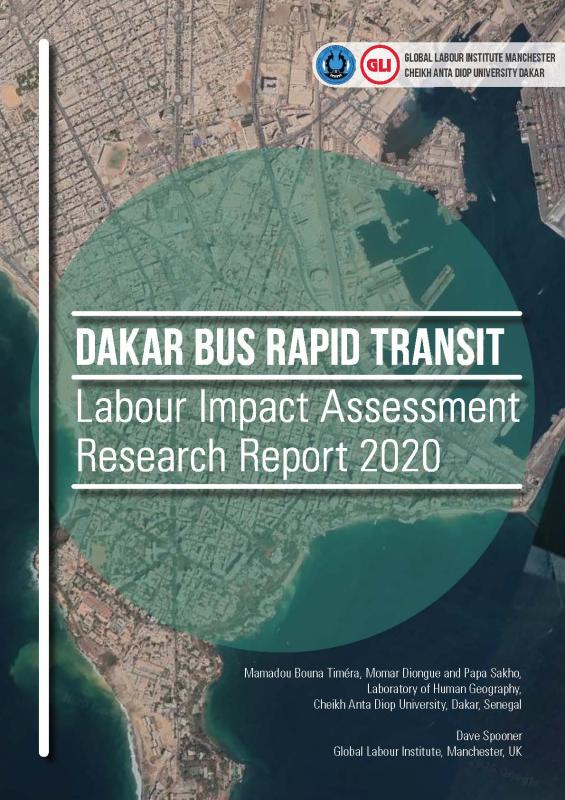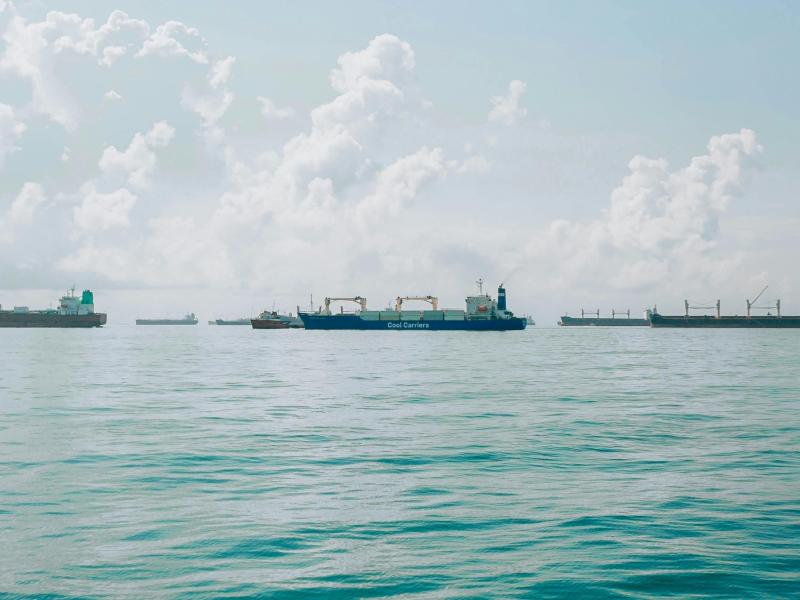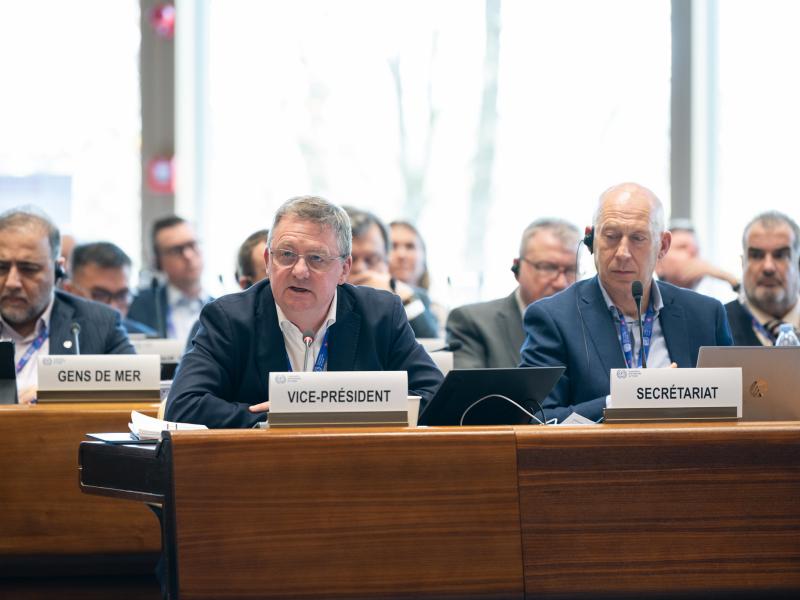Up to 10,000 jobs in Dakar’s informal sector could be at risk unless more is done to include informal workers in the city’s upcoming Bus Rapid Transit (BRT) system project, warns a report commissioned by the International Transport Workers’ Federation.
Dakar Bus Rapid Transit Labour Impact Assessment Research Report 2020 highlights the reality of informal public transport workers in Dakar and the major issues they face, including job insecurity, low pay, long hours, harassment and lack of training or pathways into formalised work. The report is being published this week to coincide with the Transforming Transport 2021 conference, which is co-organised by the World Bank. Alongside the European Investment Bank and the Green Climate Fund, the World Bank is the majority funding partner of Dakar's BRT project.
Based on research conducted prior to the global Covid-19 pandemic, the report findings are even more pertinent as governments roll out economic recovery plans. "Covid-19 has exposed the vulnerabilities of workers in the transport sector, particularly informal workers," says Papa Sakho from Dakar’s Cheikh Anta Diop University, who is one of the report’s authors.
"With few financial protection nets, informal transport workers have been devastated by the pandemic. Better inclusion, consultation and employment pathways would benefit thousands of women and men at a time of unprecedented economic hardship. BRT could be an opportunity to formalise areas of the informal transport economy and prevent some of Dakar's most vulnerable workers from being left behind."
The report finds extreme levels of insecurity among Dakar’s informal transport workers, with only six percent saying they had a job contract with their employer. Women were less likely to have a contract, with only 2.5 percent of women having one, compared to 7.5 percent of men. Two-thirds of all workers surveyed (68.7 percent) did not have regular jobs, and 57 percent of workers interviewed saying they received their incomes directly from customer fares.
The report outlines practical steps for a just transition from informal to formal transport. This entails deepening the understanding of the nature of the informal workforce and assessing the potential implications of BRT upon the livelihoods and working conditions of informal workers.
The BRT consultation and planning process must likewise analyse the project’s gendered impacts. More women than men work in Senegal’s more precarious transport occupations and will therefore be disproportionately impacted by formalisation and the introduction of BRT. For example, the few women on-board buses work as conductors, which puts them at high risk of job losses resulting from automation. There are also more women than men in trading roles at stations or stops.
Despite recommendations from the 2004 ITDP report Pre-Feasibility Study for Bus Rapid Transit in Dakar, as well as World Bank obligations to analyse the social and environmental impacts of BRT, at the time of the study there was little or no consideration of the impact on livelihoods in the informal transport services which are threatened by the introduction of BRT. Trade unions and associations representing informal transport workers were likewise not consulted.
There was very low awareness about BRT among informal workers interviewed for the report, with 76.5 percent of workers saying they were not aware of the plan. Although this has likely now changed as BRT construction gets underway, it highlights how little had been done to engage them in the project’s initial phase. "It was when I got back from the village … that I heard we’d been evicted. I’ve not even been registered, and it was through the press that I learned that BRT work is starting," one garage trader says. Over 56% of workers surveyed said they risked losing their job with the establishment of BRT.
The report makes several recommendations to ensure an inclusive and fair transition to BRT, starting with including informal workers and unions in the consultation process. While representatives of vehicle owners have been included in BRT consultations, they do not speak for all workers, and indeed in some areas, may have major differences in interests.
It also recommends that workers’ own proposals for formalising their industry are heard. These proposals include providing more opportunities for vocational training, particularly for women, prioritising informal workers in BRT recruitment, and improving workspaces, including through the provision of such facilities as toilets, shelter and drinking water.
Under the leadership of Gora Khouma, Secretary General of the Union des Routiers du Sénégal (URS), ITF and its local affiliates and drivers’ associations have already been in contact with the Executive Council of Urban Transport in Dakar (CETUD) on BRT and the promotion of decent work in urban transport.
"We’re calling on CETUD, the Senegalese authorities, the World Bank and other international donors and investors to prioritise the wellbeing of thousands of informal workers within BRT,” says ITF Africa Francophone representative Bayla Sow. “Improvements to their working conditions and livelihoods will in turn benefit passengers and the Dakar economy as a whole.”
ENDS
Note to editors:
- The full report is available for download at: https://www.itfglobal.org/en/reports-publications/dakar-bus-rapid-transit-labour-impact-assessment-research-report-2020
- The report was commissioned by ITF and carried out by Mamadou Bouna Timéra, Momar Diongue and Papa Sakho at the Laboratory of Human Geography (LABOGEHU) at Cheikh Anta Diop University, Dakar, Senegal, and Dave Spooner from the Global Labour Institute (GLI) in Manchester, UK
- The ITF commissioned a similar labour impact assessment in Nairobi and GLI have also undertaken another in-depth study of Kampala’s informal workforce.
- The ITF report can be read in conjunction with its report Informal Passenger Transport Beyond Covid-19: A Trade Union Guide to Worker-led Formalisation




